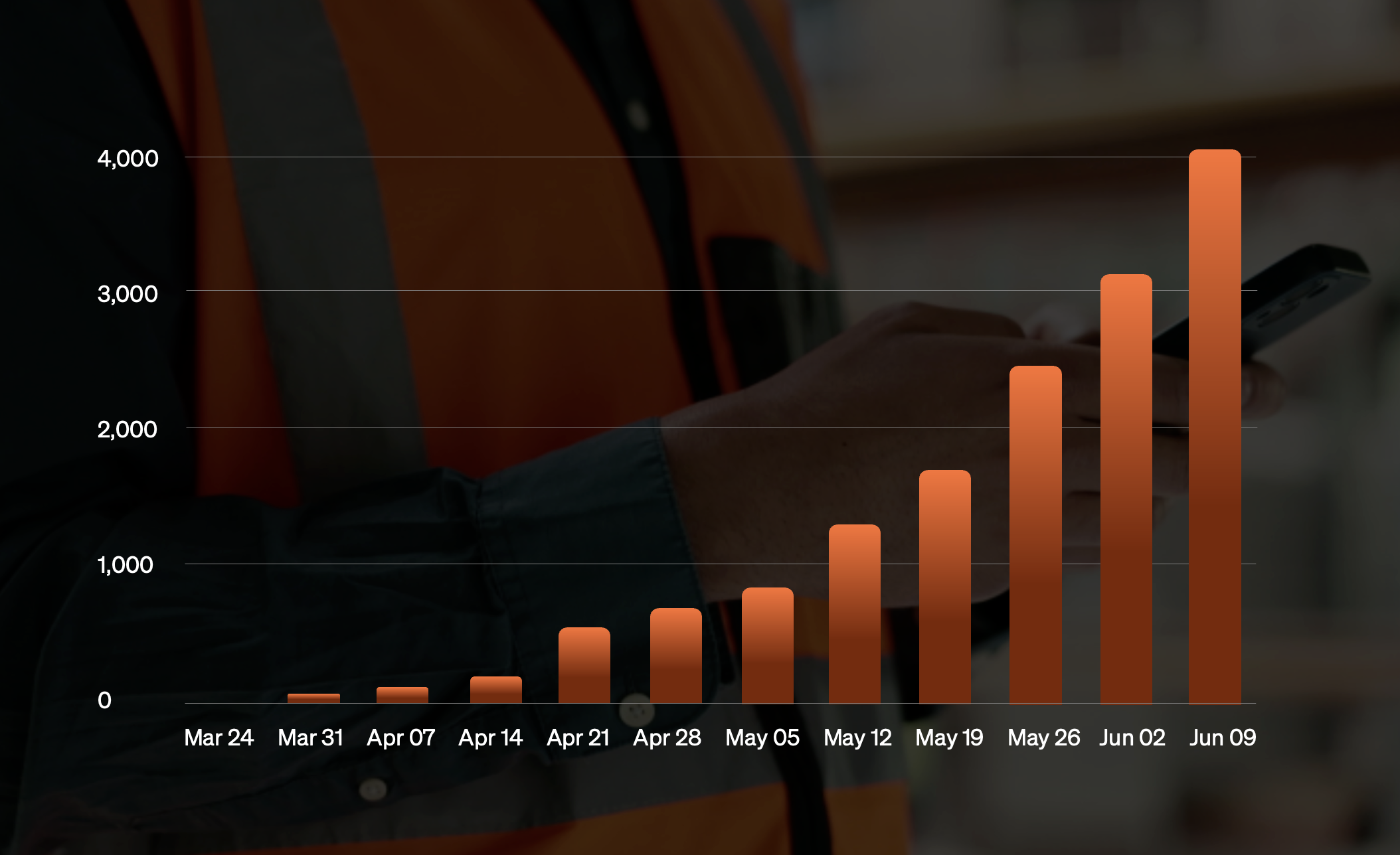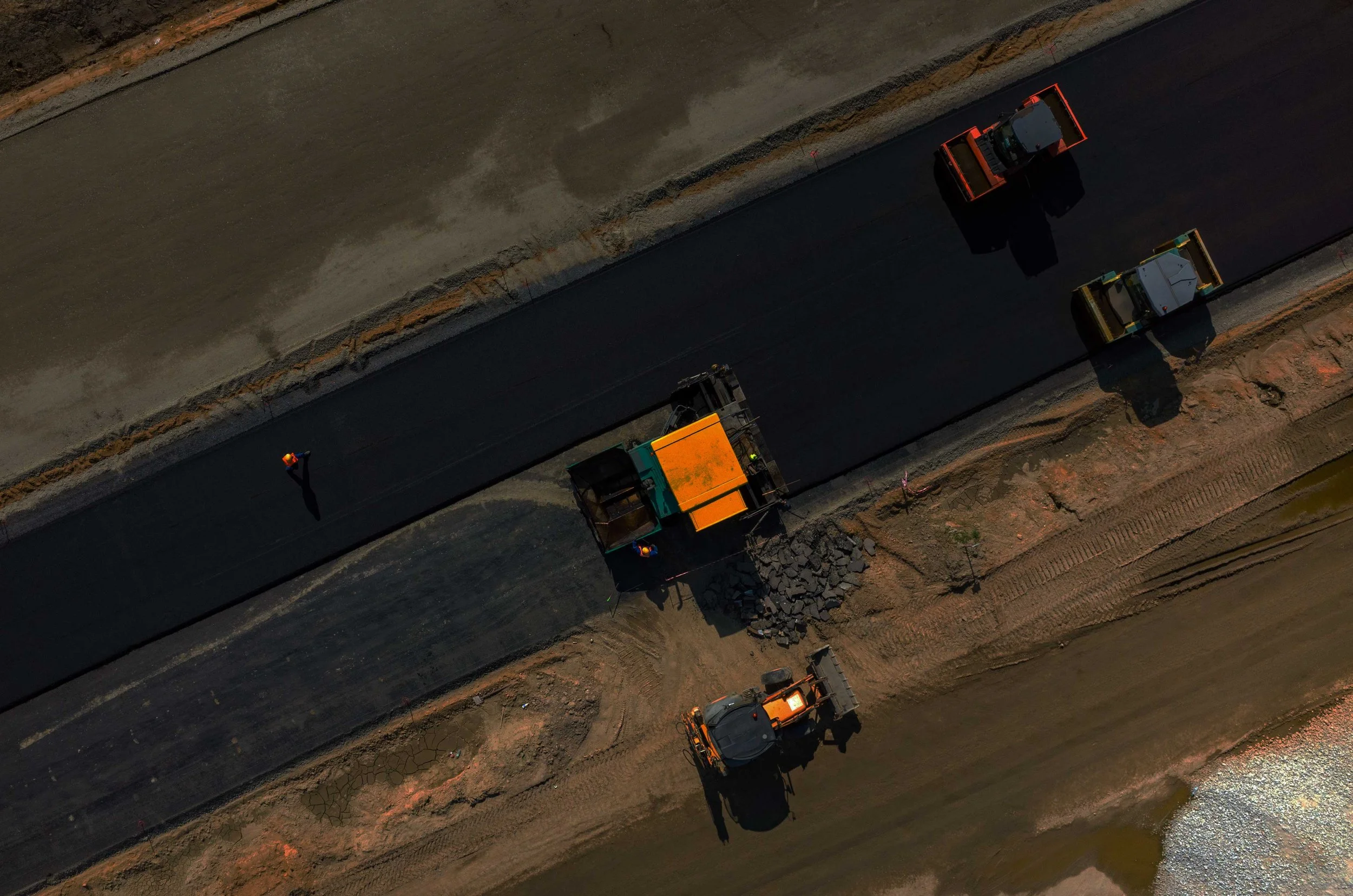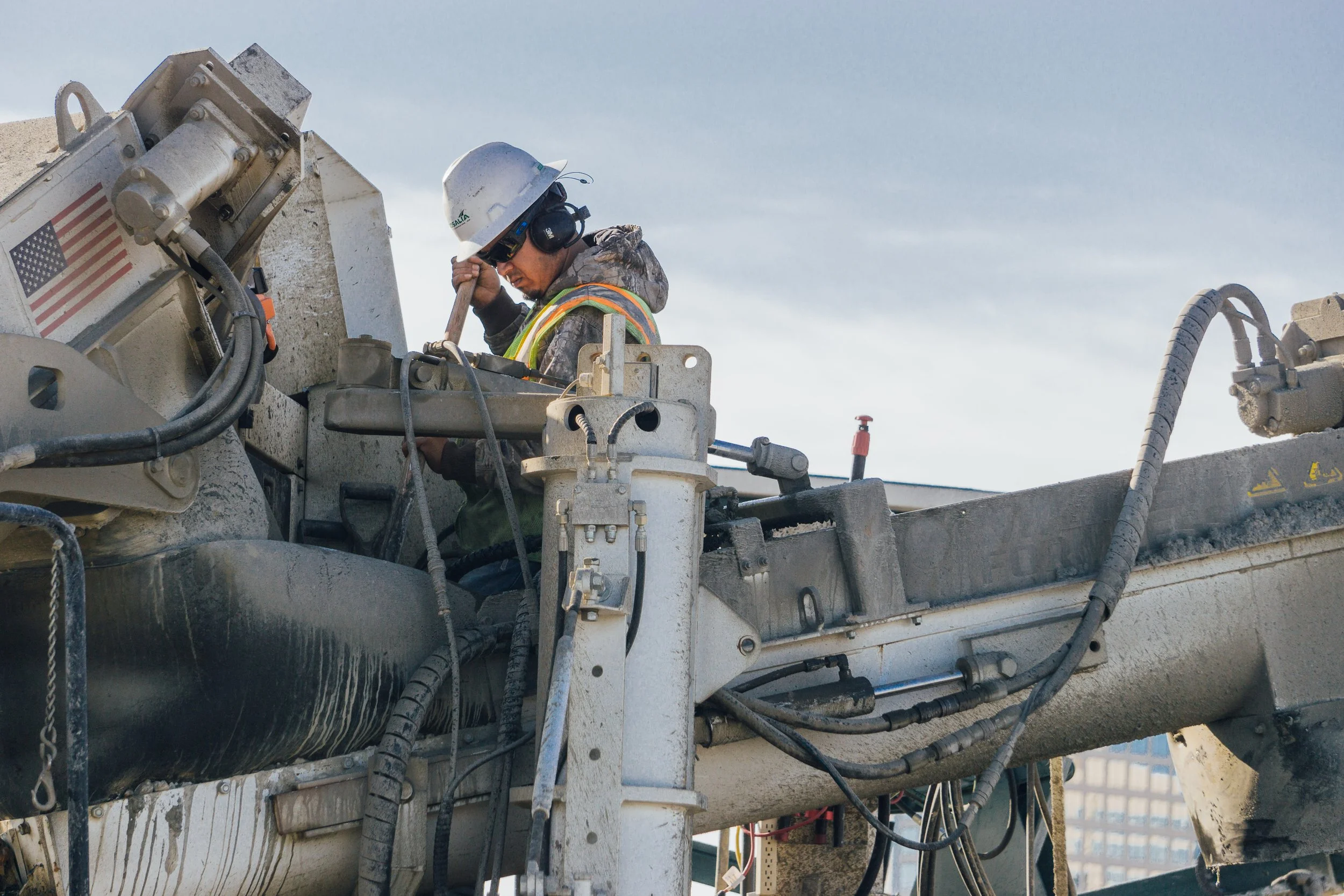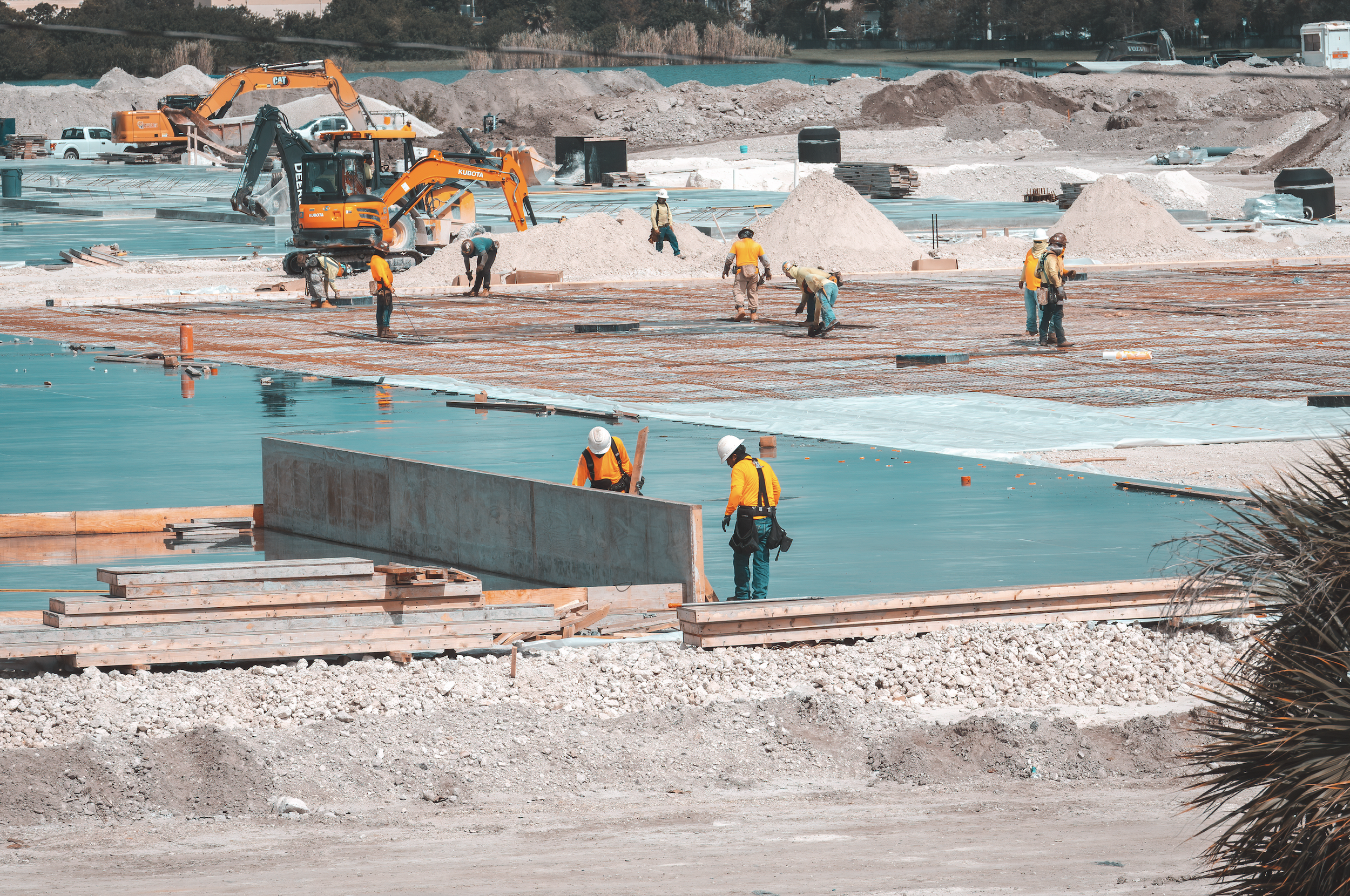

Hi, I’m Fraser Patterson.
I founded Skillit to help fix the labor crisis in construction and offer people a way to do meaningful work in the age of AI.
I was born and raised in Scotland and lost my parents young, which landed me in a Harry Potter-like boarding school in the Highlands. It really was Hogwarts, just without the magic, but after being invited to "go explore further educational opportunities" (ok, expelled), I found myself on the cobbled streets of Edinburgh learning a trade.
My apprenticeship was tough and confusing. I alternated between job sites and technical college, and almost everything I learned in the classroom seemed redundant on-site. Once I became a journeyman carpenter, things didn’t get much easier. I loved the work and took enormous pride in honing my craft, but finding and keeping jobs was hard. I didn’t know how to find the best opportunities and was often patronized by my peers who had gone on to college.
Trading up
Fast-forward a couple of decades and I’m living in New York, building a new kind of construction company and struggling myself to find and hire carpenters and drywallers. That’s when I first became aware that the U.S. construction industry had a chronic skilled labor shortage.
Now this gap is often blamed for delaying progress on critical infrastructure, housing, and energy projects and has even been framed as one of the biggest obstacles to building a livable planet. But while construction has a 5% labor gap, every other major industry operates with even larger shortages. Nursing, for example, has a 10% gap. Retail and software are close behind.
So why does construction feel the pain so much more? Well I believe it’s simply because nobody built the digital infrastructure to find and reach construction workers. For decades, software was built by and for people who sit behind desks. That’s why only 18% of construction workers have a digital profile (compared to 90% of knowledge workers) and the few that do are mostly on LinkedIn or Indeed—tools not built for the trades.
So my idea was simple: what if you could make it insanely easy for every craft worker to build and own a searchable profile—one that reflects their skills, experience, and preferences—so the best employers could actually find them? Wouldn’t that fix the labor crisis?
That idea became Skillit, and while it sounded simple, we first had to build a few enabling layers of infrastructure to get the idea off the ground but over the last three years, with the support of some of America's top venture investors and a passionate and talented team of builders, we've turned it into a reality:
We’ve sourced 150,000+ craft workers across 35 trades and watched them build incredibly data-rich profiles.
We built a search engine just for construction employers, where a vetted craft worker is discovered every second—and hired in just 4 minutes of effort (vs. 40 minutes on Indeed).
We launched Sam, the first AI scheduling assistant for construction, enabling instant interview scheduling by phone. Since launching, Sam has delivered 12x more interviews, 10x faster than job boards and its usage is growing 40% each week.
We now serve 20% of the Top ENR and their trade partners with 30% of them joining in just the past 30 days.
Doing meaningful work in a mechanized world
Looking ahead, I see two forces converging in a way that will reshape the future of our society: the rise of AI, and the return of craftsmanship:
For the first time in decades, more young Americans are choosing trade school over college (and for the first time, more adults now recommend trade school to high schoolers than a four-year degree).
At the same time, AI is tearing through entry-level knowledge work disrupting the very jobs our education system was designed to feed. Some AI CEOs even predict this wave could eliminate ~20% of American jobs in the next five years, hitting finance, law, tech, and other white-collar professions first.
This sounds like a bad thing but I see it as a massive opportunity for our society. More than 20% of Americans today report thinking the work they do is “bullshit”, offering no value to the rest of society. I think people feel this way because these jobs don’t respect the full potential of the humans doing them. Sitting at a desk, increasingly at home enduring an “infinite’ workday, engaging only a narrow slice of your mind and using just your fingertips to shuffle words around a screen while never quite knowing if your work matters. Honestly, I think many of these jobs are bullshit, especially for young folk at the start of their careers, and that they should be replaced by LLMs.
Meanwhile, construction is stable, future-proof, and more respected than ever. You’re using your full mind, whole hand and entire body. You’re not working from home, you’re out in the world often building someone else’s home or shaping the kind of infrastructure you’ll proudly point out to your kids for years to come.
And unlike knowledge work, the trades are not at risk of being replaced by robots anytime soon. Sure we’re starting to expand the use of semi-autonomous tools across very simple job sites and basic tasks like layout and bricklaying but my best guess is that we won’t see economically viable human-equivalent generalist robots until 2040 or beyond and even then they’re not going to replace skilled humans but simply augment them or make construction more affordable and so stimulate more, not less employment.
The irony of course is that the jobs least at risk of automation are the ones that require the most human skill yet we’ve undervalued them for decades. They require not just thinking and knowledge, but judgment, dexterity, ingenuity and strength. We’ve really over-hyped the intelligence thing because its never been the most valuable human trait. If raw IQ were all that mattered, Mensa geniuses would be living the happiest lives, running the best companies and shaping our world in various ways. Newsflash, they’re not.
Scale your craft
America is reindustrializing faster than at any point in history—from infrastructure and factories to an AI-fueled surge in energy and data center construction—and we’re feeling this demand at Skillit with top ENR and specialty contractors adopting our platform at record pace across the South and Southeast.
In response, we’re gearing up to onboard and digitize 2 million workers nationwide over the next 2 years across craft and admin roles. This has the potential to unlock real labor liquidity for the top 50,000 civil, commercial and industrial contractors who are responsible for 80% of industry hiring. It will also give us the scale to support the nation’s most mission-critical projects while creating a construction employment engine unlike anything the industry has ever seen before.
I genuinely love the work we’re doing at Skillit. By making every craft worker visible—and instantly connected—to top opportunities, we’re solving a real problem. More than that, we’re using AI to elevate human work at a time when knowledge jobs are being devalued, and construction is emerging as one of the most respected, well-paid and upwardly mobile careers in an increasingly mechanized world.
My journey from apprentice to venture-backed founder has been a 30-year pursuit of scaling my craft. Of finding ways to do more meaningful work with ever greater leverage. Today, there’s really never been a better, or more urgent, time for you to scale your craft.
Our best work is ahead of us.
AI-scheduled interviews on Skillit since launching Sam in early 2025
Respected, well-paid and upwardly mobile craft jobs in all their glory
Join us
Have a sense of purpose and humor? Want to build unambiguously good and valuable things for the world? We’d love to hear from you.
























